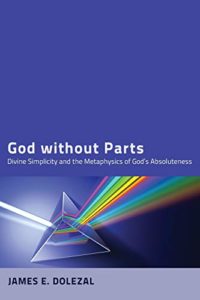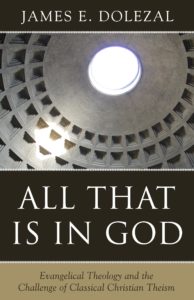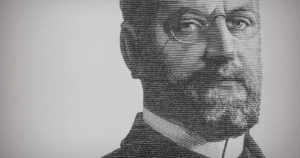
The Credo Fellow Bookclub with James Dolezal
Credo Fellow J ames Dolezal (Ph.D., Westminster Theological Seminary) is Associate Professor of Theology at Cairn University where he teaches church history, trinitarian theology, and philosophy. He is a California native and is a graduate of The Master’s College, The Master’s Seminary, and Westminster Theological Seminary. Prior to his current appointment, James served as the pastor of a Reformed Baptist church in Alberta, Canada. He and his wife Courtney live with their three children in Warminster, PA. To learn more about Dr. Dolezal’s research, check out his books below!
ames Dolezal (Ph.D., Westminster Theological Seminary) is Associate Professor of Theology at Cairn University where he teaches church history, trinitarian theology, and philosophy. He is a California native and is a graduate of The Master’s College, The Master’s Seminary, and Westminster Theological Seminary. Prior to his current appointment, James served as the pastor of a Reformed Baptist church in Alberta, Canada. He and his wife Courtney live with their three children in Warminster, PA. To learn more about Dr. Dolezal’s research, check out his books below!
 God without Parts: Divine Simplicity and the Metaphysics of God’s Absoluteness (Pickwick, 2011)
God without Parts: Divine Simplicity and the Metaphysics of God’s Absoluteness (Pickwick, 2011)
The doctrine of divine simplicity has long played a crucial role in Western Christianity’s understanding of God. It is claimed that by denying God is composed of parts Christians are able to account for his absolute self-sufficiency and his ultimate sufficiency as the absolute Creator of the world. If God were a composite being then something other than the Godhead itself would be required to explain or account for God. If this were the case then God would not be most absolute and would not be able to adequately know or account for himself without reference to something other than himself. This book develops these arguments by examining the implications of divine simplicity for God existence, attributes, knowledge, and will. Along the way there is extensive interaction with older writers, such as Thomas Aquinas and the Reformed scholastics, as well as more recent philosophers and theologians. An attempt is made to answer some of the currently popular criticisms of divine simplicity and to reassert the vital importance of continuing to confess that God is without parts even in the modern philosophical-theological milieu.
 All That Is in God: Evangelical Theology and the Challenge of Classical Christian Theism (Reformation Heritage, 2017).
All That Is in God: Evangelical Theology and the Challenge of Classical Christian Theism (Reformation Heritage, 2017).
Unknown to many, increasing numbers of conservative evangelicals are denying basic tenets of classical Christian teaching about God, with departures occurring even among those of the Calvinistic persuasion. James E. Dolezal’s All That Is in God provides an exposition of the historic Christian position while engaging with these contemporary deviations. His convincing critique of the newer position he styles “theistic mutualism” is philosophically robust, systematically nuanced, and biblically based. It demonstrates the need to maintain the traditional viewpoint, particularly on divine simplicity, and spotlights the unfortunate implications for other important Christian doctrines—such as divine eternality and the Trinity—if it were to be abandoned. Arguing carefully and cogently that “all that is in God is God Himself,” the work is sure to stimulate debate on the issue in years to come.

